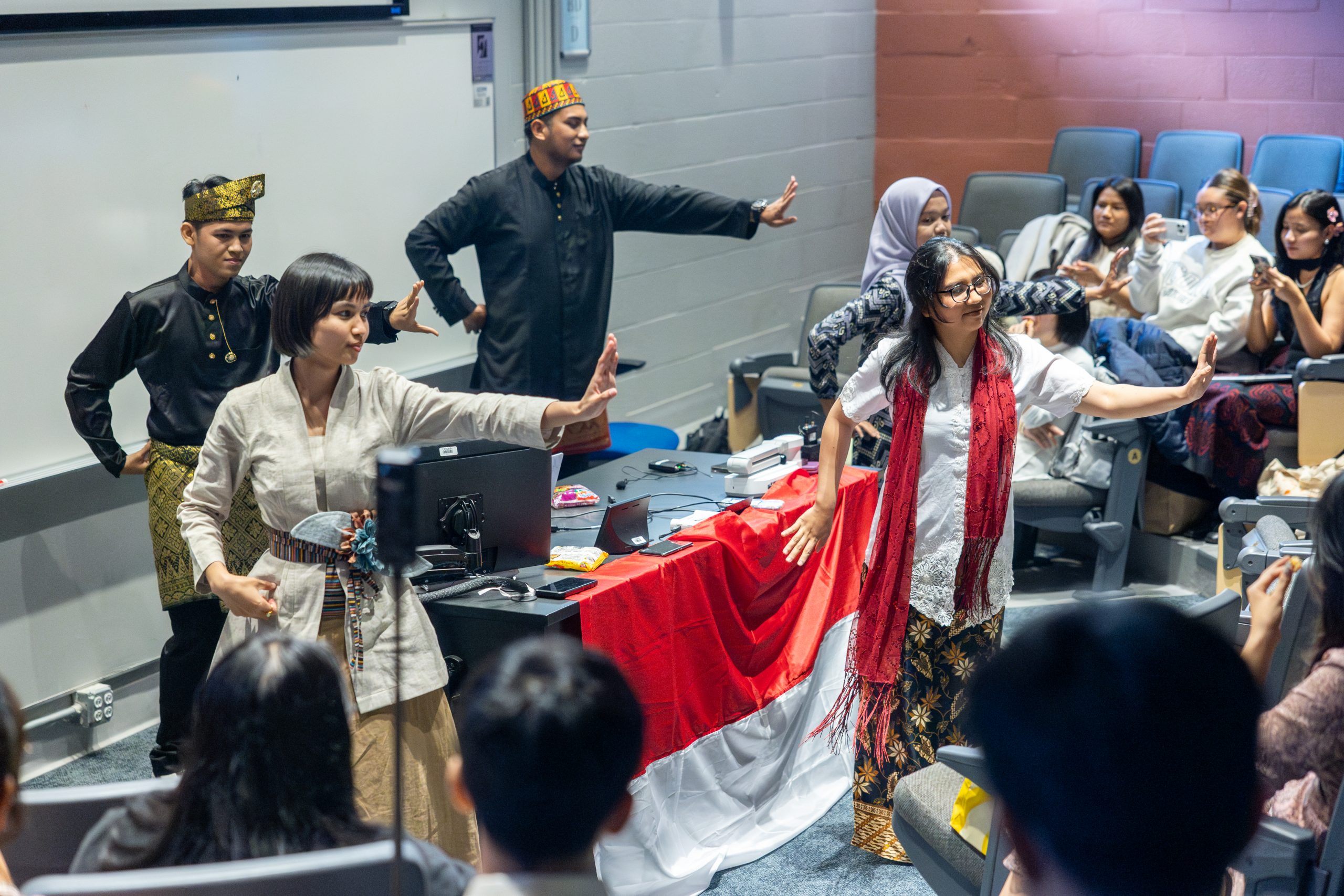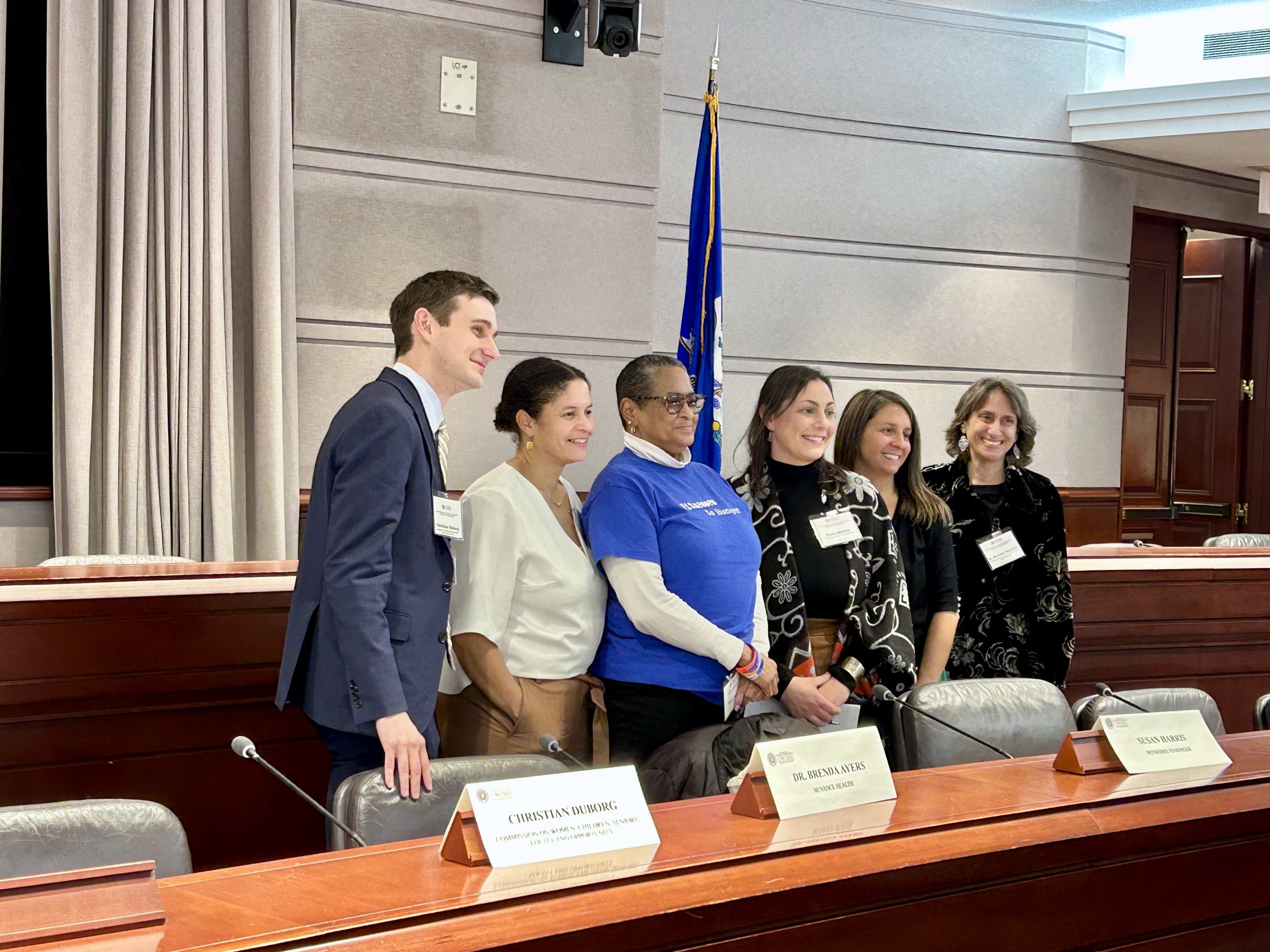This year, the UConn School of Social Work commemorates 75 years of graduating social workers committed to social, racial, and economic justice for individuals, families, and communities, both locally and globally. The School’s signature Master of Social Work (MSW) degree program is the longest-running and highest-ranked MSW program in Connecticut, and among the top 12% of social work graduate programs nationwide.
“The School of Social Work continues to stand strong among the nation’s leading graduate schools for social work,” says Dean and Zachs Chair Nina Rovinelli Heller, who has served as dean for eight years. “We also continue to be responsive to the evolving needs of our students, the community, the state, and the field of social work with offerings, programs, and cutting-edge research that address the most challenging human service issues of our times.”
Honoring the Past
The history of the School of Social Work has been chronicled twice, first by one of its early and longest-serving deans, Harleigh Trecker. His work, which covered the School’s first 30 years in 838 pages, detailed how the University and the social work profession collaborated to establish the School, starting with early discussions in the late 30s.
The School of Social Work was initially conceived as a one-year graduate program with courses to be offered in Hartford and New Haven. Delayed briefly by World War II, plans for the School would not be denied and it officially opened in 1946 under then-University President Albert Jorgensen. That year, it had just six full-time and 16 part-time students enrolled in the MSW program and a single full-time faculty member. One student received his MSW in 1948.
Esther Pahl ’52 MSW, who was one of the School’s first eight MSW graduates, has fond memories of her time at UConn. “The outstanding study and training that I received at UConn School of Social Work not only prepared me for a professional career as a practitioner but also encouraged academic growth to ready me for an outstanding career in the helping profession,” she says. During her years as a student, she recalls the School did not have its own building, so classes were taught at Hartford Public High School by mostly visiting professors from Trinity College, the University of Chicago, Boston University, and Yale.

The second chronicler of the School’s history is Professor Emerita Ruth Martin ’70 MSW, who began organizing an oral history project to mark the School’s 50th anniversary in the late 90s. Martin enlisted 27 of her students over the summer of 1997 and spring of 1998 to interview 41 individuals with deep knowledge of the School, including professors, deans, administrators, alumni, staff, as well as former professors and deans. They shared their perspectives on everything from the School’s early years, student life, milestones, programs, philosophy, and the future.
“Working on an oral history of the UConn School of Social Work in time for the 50th anniversary was a privilege that allowed my students and I to learn and reflect on the differing perspectives that built the school and profession,” says Martin. “As an alumna of SSW, I was able to appreciate my cohort’s contributions and the influence of the tumult of the 60s. The School has been a huge part of my journey.”
The oral history chapter on milestones included references to notable developments in the School’s first five decades, including but not limited to: the 20th anniversary of the Community Organizing sequence, which continues today as a program concentration; early links to state government agencies such as the Department of Social Services and Department of Children and Families; first courses on women and on aging; creation of the Institute for the Advancement of Political Social Work Practice (now the Nancy A. Humphreys Institute for Political Social Work) and first campaign school; start of the Puerto Rican Studies Project; and first courses for people with disabilities, gays and lesbians, and people with HIV; among many others.
The School has inspired long service by several deans, faculty members, staff, and alumni. Professor Louise Simmons, who has been at the School for 46 years, and worked under eight deans, recalls the days before the University had computers. She initially worked in the Field Education office and later directed a service-learning program called Urban Semester in addition to teaching.
Simmons observes that over the years, the School has placed a greater emphasis on faculty research, now a key pillar of the School’s strategic plan. It has also brought in more young faculty members and greater diversity, including faculty researchers who address racial justice, international issues, and LBGTQ issues. “We express diversity in different ways,” she says. “There are connections with different parts of the local community. The school is healthier for that now because we consider those issues to be very important.”

The School is distinguished, she says, by its specialized concentrations for master’s students, which include Individuals, Groups, and Families Practice; Community Organizing; and Policy Practice. “We have a very strong macro program,” she says. “Some alumni have been in the state legislature, speaker of the house. Others have gone on to play important roles in advocacy and policy groups.”
Celebrating the Future
Today, the School has greatly expanded to encompass a Bachelor of Social Work program and a Ph.D. program, which is the first and only public Ph.D. social work program in New England; it celebrated its 20th anniversary this year. Some 403 students are enrolled in all three programs, and more than 8,700 alumni are recognized social work leaders throughout the region and nationally.
For several years the School was based at the UConn Greater Hartford campus in West Hartford, and is now situated in the heart of downtown Hartford, the state’s capital city. This location, close to a diverse urban center and accessible to hundreds of human service agencies statewide, allows the School to maintain its strong public service commitment and provide a wide range of hands-on field internship experiences for students.
Most recently, the School welcomed Innovations Institute, an interdisciplinary translational research center that greatly expands its national footprint, particularly in the area of child welfare. The Institute brings $12 million in grant funding and partnerships with 42 local and state governments to improve supports, systems, services, and outcomes for children, youth, and families across the country.
“The Institute strengthens our commitment to academic-public agency partnerships,” says Heller. “Their expertise in policy, finance, intervention design and installation, along with translational research, is core to the mission of SSW, and for the profession, and aligns with our strategic goals of increasing research, providing life-transformative experiences, and increasing community engagement.”
In April, the School will celebrate its 75th anniversary with a special event in Hartford. A 75th anniversary page also highlights achievements of just a few of the School’s distinguished and influential alumni.



